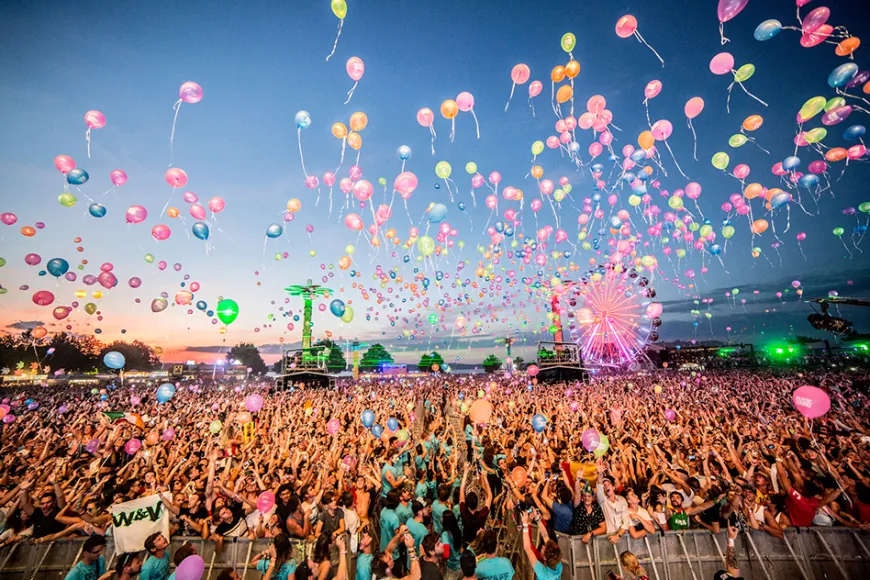Music Tourism: A Growing Phenomenon Attracting Travelers Worldwide In The Industry

The Rise of Music Tourism
One of the biggest drivers of music traversing has been the explosion of large-scale music festivals around the world. What started as modest local events has grown into huge multi-day extravaganzas attracting thousands of fans. Major festivals such as Coachella in California, Glastonbury in England, and Lollapalooza in Chicago have become global destinations in their own right. The popularity of festival culture has inspired the creation of countless regional festivals as well, allowing fans to experience live performances in scenic outdoor settings. From country music jamborees to EDM raves, there is a festival experience catering to virtually every music taste.
Pilgrimages to Historic Music Tourism
For dedicated music aficionados, visiting locations significant to their favorite artists holds deep meaning. Graceland in Memphis sees over 650,000 global visitors annually who come to experience where Elvis Presley lived. In Liverpool, UK, the Beatles Story museum and Fab Four tours showcase the group's formative years. Nashville, Tennessee has emerged as a major music traversing center with attractions dedicated to icons like Johnny Cash and Dolly Parton. Small towns too have gotten in on the act - cant miss sites for bluegrass lovers include the Carter Family Fold in Hiltons, Virginia and the International Bluegrass Music Museum in Owensboro, Kentucky. By preserving music history, these places satisfy fans' curiosity while boosting local economies.
City Tours centered around Music
Many cities worldwide have skillfully leveraged their musical pasts to design engaging walking, bus, and segway tours. In Greenwich Village, Big Apple affiliates lead walks highlighting spots where Bob Dylan, Joan Baez, and other folk legends once performed. Austin, Texas companies offer options like the "Outlaw Trail" immortalizing the outlaw country movement. Across Europe, destinations from Liverpool to Prague offer immersive itineraries that bring artists' stories to life location by location. Whether delving into jazz history on a Chicago trail or blues roots in Memphis, these tours allow visitors to literally step into musicians' footsteps on personally guided explorations. The interactive format keeps heritage alive while stimulating spending in the local tourism sector.
Live Music is a Primary Draw
At the end of the day, nothing compares to experiencing live tunes. Iconic venues like the Grand Ole Opry in Nashville, Fillmore Auditorium in San Francisco, and Royal Albert Hall in London continue packing in audiences night after night. Dive bars, house concert venues, and rural hoedowns also regularly pull in traveling roots music fans. Many destinations like Austin and Memphis have cultivated vibrant local scenes that entice transient visitors to return time and again. Whether catching a rising young act or a legendary artist's final show, the opportunity to witness spellbinding performances up close makes music cities exciting stops for both amateurs and aficionados. Extensive live event calendars give travelers an embarrassment of options for soaking up the true spirit of musical places.
New Models for Authentic Cultural Exchanges
Increasingly, Music Tourism involves more than passive consumption. Opportunities abound for visitors to participate in workshops, community jams, and artist residencies. The Django à June festival in the South of France hosts intimate guitar masterclasses alongside public concerts each year. Jamaica's Reggae Sumfest offers week-long artist mentorships to cultivate new talent. Closer to home, Virginia's Blue Ridge Music Center provides lodging and facilities so folks can hone skills alongside pros during informal mountain gatherings. As travelers seek genuine cross-cultural exchange, these programs satisfy an appetite for hands-on engagement with local musical customs and artisans. They may just spark a new artist in the making or deepen one's connection to a genre.
A Sustainable Revenue Source for Communities
Through developments like festivals, heritage sites, infrastructure for performers and fans, and promotion of indigenous crafts, music traversing has become a major economic pillar for many locales. The Country Music Association estimates Nashville's overall industry impact at over $6.8 billion annually. Memphis drew almost 5 million visitors in 2015, a large percentage there for the blues. Countries as varied as Jamaica, Mali, Brazil and Cuba also reap significant benefits from marketing indigenous sounds. When planned responsibly, music trails and events can boost jobs and small businesses without compromising environmental or societal well-being. As more communities recognize tourism's potential to complement artistic cultivation, the future is bright for music as a sustainable cultural export.
In conclusion, music traversing has evolved rapidly due to growing interest, technology, and creative destination development. It satisfies both casual and avid fans while benefiting artists, venues, and entire communities worldwide. Various models engage travelers through concerts, cultural immersion, heritage preservation, and hands-on participation. With boundless regional styles yet to explore, innovation ahead, and passionate fans worldwide, this phenomenon shows no signs of slowing. Music will continue motivating exploration of scenic and historic places that have inspired hit songs and larger-than-life performers for generations to come.
Get more Insights on Music Tourism
Discover the Report for More Insights, Tailored to Your Language
About Author:
Ravina Pandya, Content Writer, has a strong foothold in the market research industry. She specializes in writing well-researched articles from different industries, including food and beverages, information and technology, healthcare, chemical and materials, etc.












